Baidu launches the first test of 'Wen Xiaoyan': more grounded AI search, instantly becoming a lazy person's magic tool
![]() 09/04 2024
09/04 2024
![]() 610
610
Since last year, the world of large models has been turbulent, with continuous upgrades and emergence of new large models. If in 2023, AI large models brought an unprecedented shock to everyone, then by 2024, the core focus of AI large model competition has shifted to practical applications.
As the first company in China to launch a general-purpose large model, Baidu released the country's first large model, Wenxin Large Model 3.5, in March last year, and launched the Wenxin Yiyan App based on it.
Today, Baidu's Wenxin Yiyan App is once again upgraded.
Wenxin Yiyan upgraded again, AI search gathers top players
Under the new 4.0.0 version, Wenxin Yiyan is upgraded to 'Wen Xiaoyan', and the App will provide five core scenario capabilities: asking questions, chatting, writing articles, drawing pictures, and assigning tasks. At the same time, all users can use the Wenxin 4.0 large model for free, valid for the entire month of September.
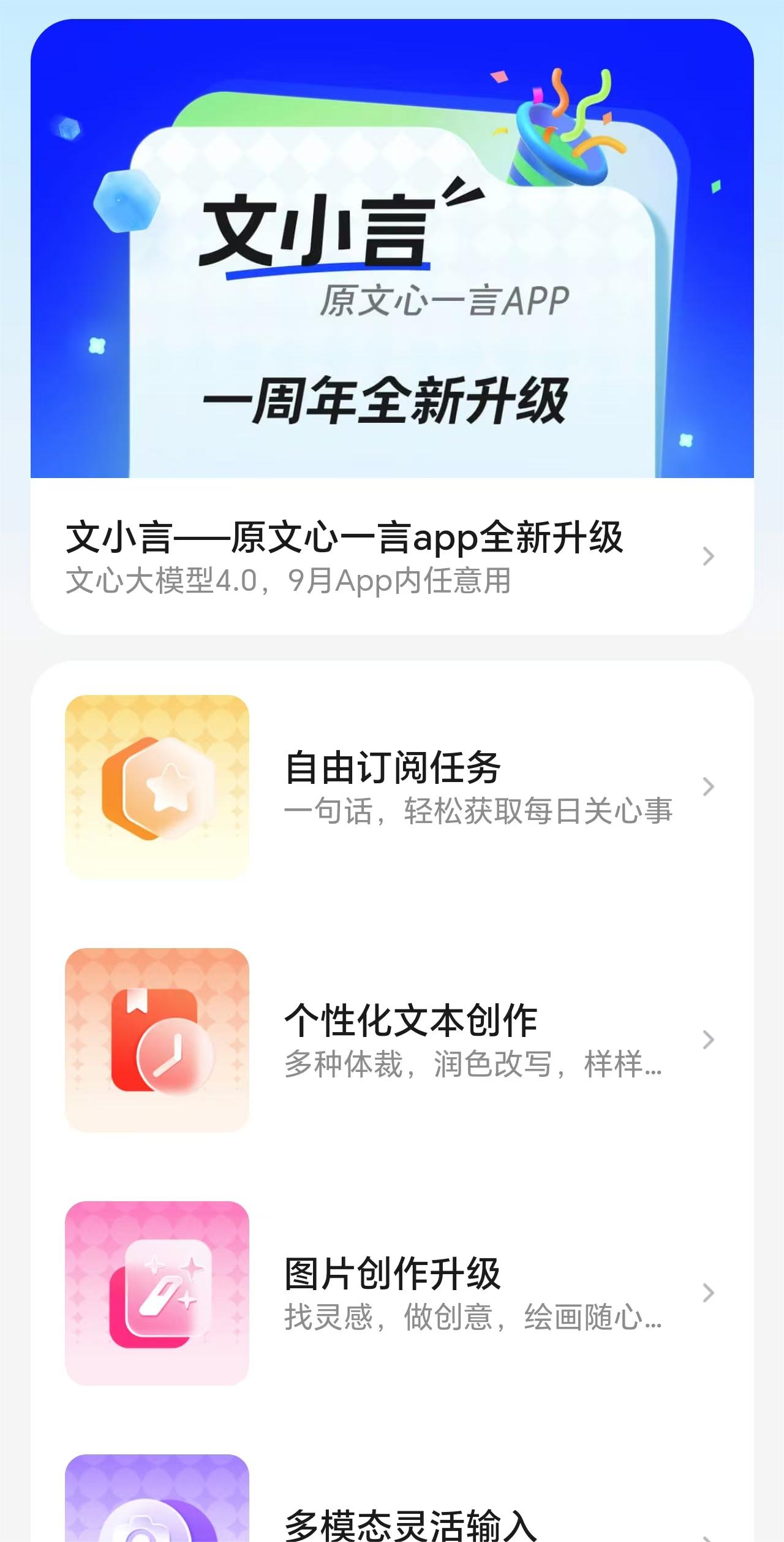
Image source: Wen Xiaoyan
When Lei Tech first tried out Wenxin 4.0 at its launch, the evaluation was that it was eye-catching. Especially in AI search, there has been a certain improvement in Chinese semantic understanding, and it has avoided the "hallucinations" of large models in logical reasoning and knowledge question answering. It can be said that Wenxin 4.0 is indeed on par with GPT-4 in terms of comprehensive ability.
At the 2024 Baidu Wanxiang Conference, Baidu Vice President
Search is Baidu's bread and butter. In the minds of users, Baidu is synonymous with search for Chinese people, just as Google has long been synonymous with search for overseas users, making it difficult for other competitors to threaten Baidu in the traditional search era.
With ChatGPT as a representative, generative AI is seen by countless people and companies as the key to disrupting and changing search engines. From giants to startups, almost all are introducing generative AI. According to the definitions of companies like Baidu and Google, most current AI large models that support internet-connected data retrieval can be considered "AI search," but due to limitations in search engine data sources and AI large model data scales, the quality of responses varies widely.
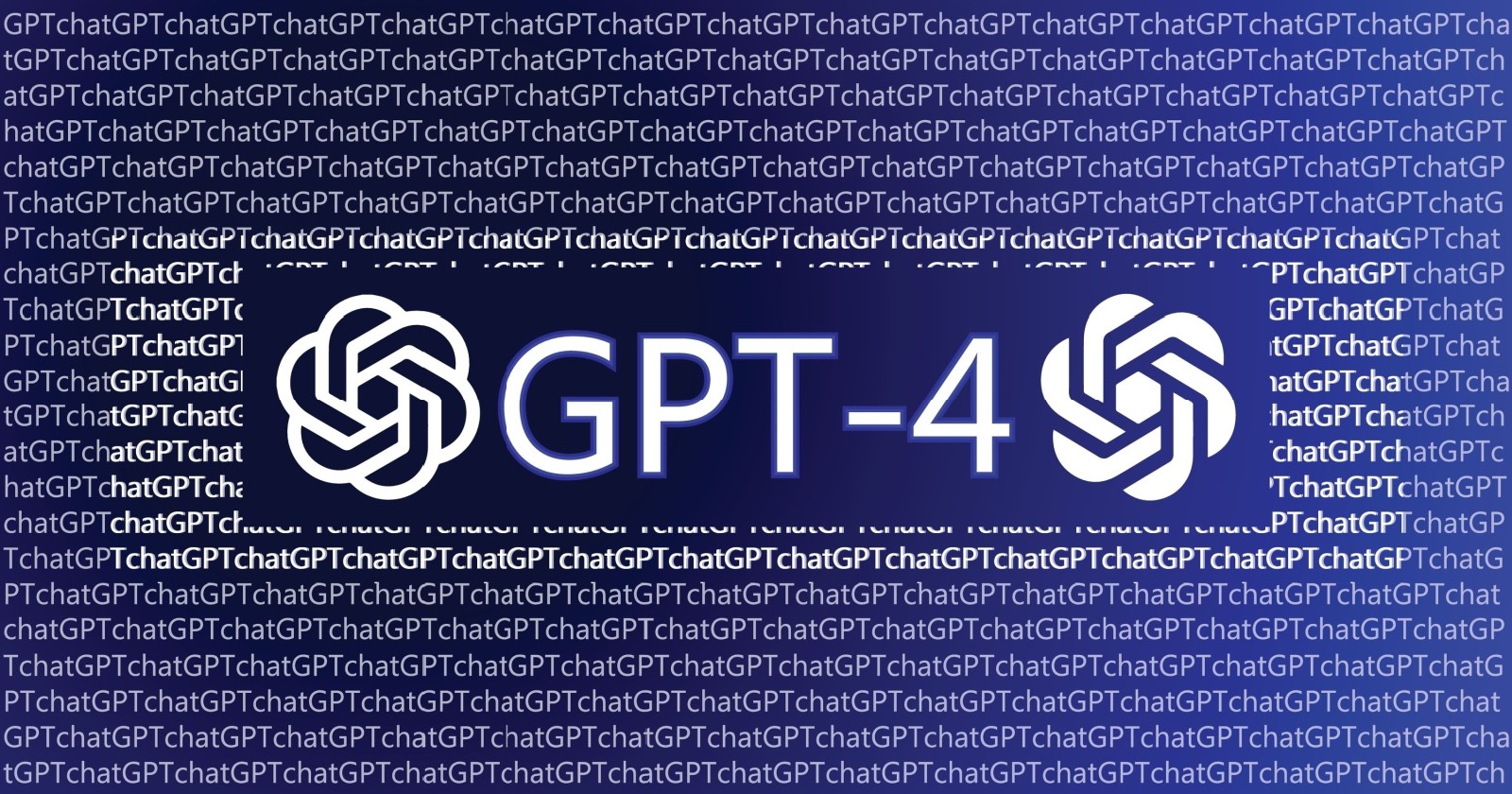
Image source: OpenAI
Currently, the AI search landscape includes players such as Google, Baidu, OpenAI, ByteDance, Tencent, 360, Tiangong AI, and Meta AI Search.
Supporting multimodal input, having multi-step reasoning capabilities, and being able to handle long queries with multiple constraints have become standard features of AI search products, further enhancing their information integration capabilities. More importantly, AI search has virtually eliminated the problems of advertisements and content farms that plagued search results in the past, sparing users from sifting through ads to find answers.
Of course, the premise for AI to change user perceptions and disrupt the search engine market is that the responses must be sufficiently reliable.
So Lei Tech is also curious about how much progress the new Wen Xiaoyan App has made in AI search and how it differs from other products with AI search capabilities.
With these questions in mind, Lei Tech put Wen Xiaoyan to the test against other AI search products to see how AI search performs at this stage.
Seamless integration into daily life scenarios, I found Wen Xiaoyan's core competitiveness
Compared to traditional search, the biggest feature of AI search is that users can now ask machines for information and answers as if they were chatting casually. When it comes to questions involving specific locations or complex requirements, it is the best test of AI search capabilities.
Lei Tech therefore posed the question "How do I take the subway to a certain place" to various AI products and received the following responses:
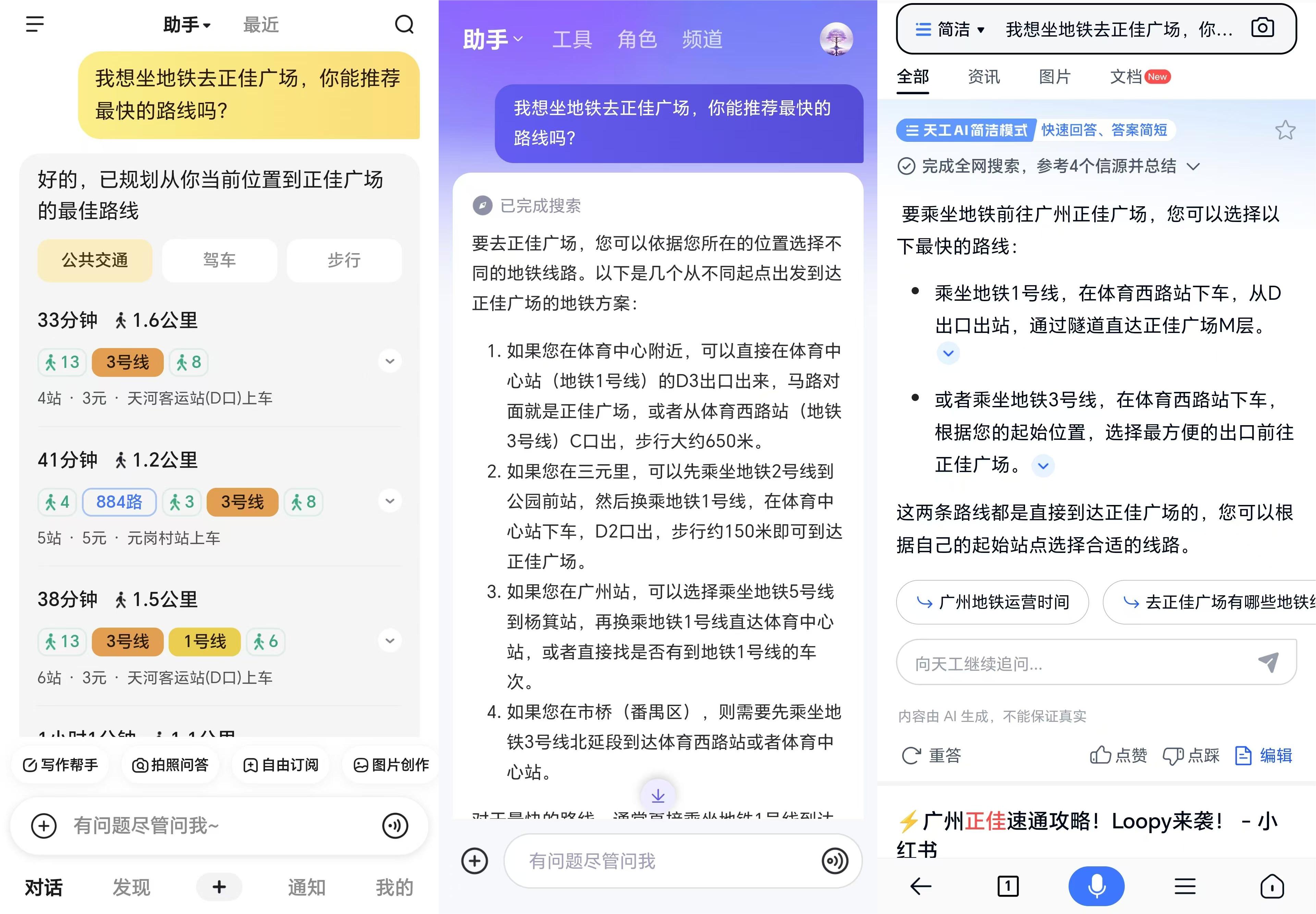
From left to right: Wen Xiaoyan / Tongyi / Tiangong AI
Image source: Lei Tech production
From the responses of different AI search products, we can easily see the differences between them. Although all products accurately identified the location of Zhengjia Plaza and provided correct subway travel plans, Wen Xiaoyan directly provided various transportation routes based on the user's current location, including buses, subways, driving, and walking, by calling the Baidu Map plugin.
However, AI search products such as Ali Tongyi, Tiangong AI, Meta AI Search, and 360 AI Search failed to recognize the user's current location and provided answers based on conventional internet responses. It is understandable that to achieve seamless integration of scenarios like Wen Xiaoyan, support from map plugins is necessary. Personally, I have only seen similar functions on Wen Xiaoyan and Alipay's intelligent assistant.
Similarly, for AI search products to provide services such as transportation and dining directly from the search interface, they also require ecosystem support, which sets a high threshold that not all AI search products can meet. Once achieved, the user experience will be greatly enhanced.
Lei Tech continued by asking about "finding nearby delicious food," and Wen Xiaoyan immediately listed a series of western restaurants, with corresponding ratings and additional information such as directions and reviews upon clicking on the cards. In comparison, Ali Tongyi's response was slightly inferior, with information dating back to 2020 and 2021. Although the AI warned that the information might be outdated, it was clearly not the answer users were looking for.
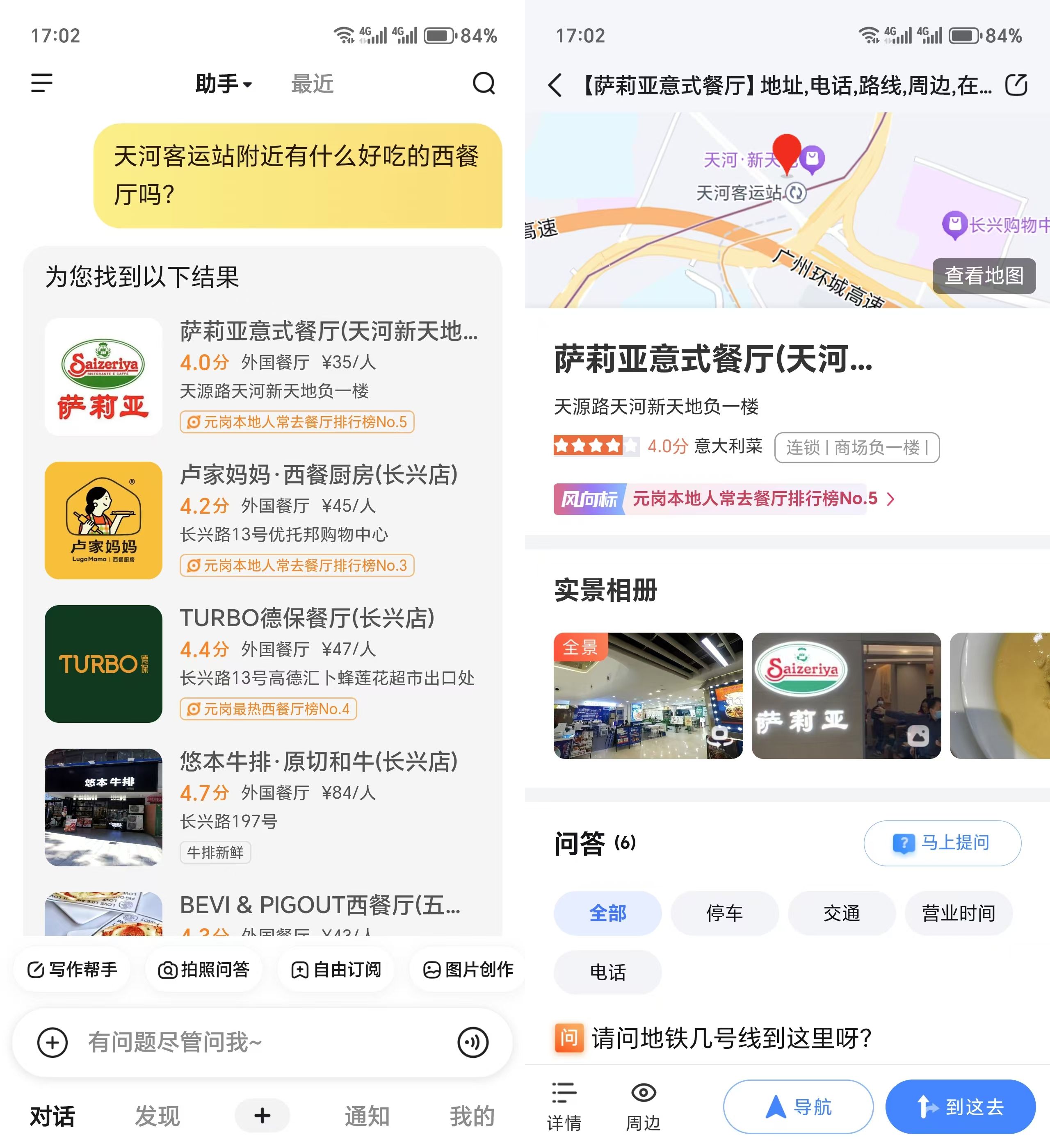
Wen Xiaoyan / Image source: Lei Tech production
The responses from other AI search products were standard, with no major errors except for the inclusion of cafes among the western restaurants. Lei Tech searched using a map app and found that all the restaurants were located near the designated location, within a radius of no more than 5 kilometers.
This may also be one of the potential development directions for AI search. Lei Tech sees in Wen Xiaoyan the beginnings of an AI ecosystem centered on AI search, connecting various life scenarios and services.
While Wen Xiaoyan has potential, there is still plenty of room for optimization in terms of actual experience. For example, when it comes to long natural language queries involving multiple keywords, the AI may not fully recognize them. As an AI search built on an AI large model, this performance is clearly not intelligent enough. It's not that it lacks the ability to complete the task, but rather that it needs further information filtering and recommendation based on user needs.
As a user, Lei Tech's expectations for AI search go beyond a single search engine. Instead, it hopes for an AI assistant that can gradually get to know users through continuous interaction, have memory capabilities, offer personalized services, and free users from the clutter of various apps.
The name change is for better facing AI search competition
As we mentioned earlier, companies like Google, Baidu, Tencent, and OpenAI are all driving the development of AI search. From a product perspective, AI search products on the market can be roughly divided into two categories.
The first are dedicated AI search engines that only provide AI search functionality, such as 360 AI Search, Meta AI Search, and Google AI Overviews. The second category is composite AI assistants that integrate AI search, AI generation, and other AI capabilities. This includes Wen Xiaoyan, Tencent Yuanbao, Kimi, which were initially positioned as AI assistants, as well as Tiangong AI, which initially focused on AI search before adding other AI functions.
To answer the question in the title, we must first determine in what scenarios search should appear. Where do people usually go to find answers when they encounter problems, search engines or platforms like TikTok, Xiaohongshu, or WeChat? The answer is not uniform.
But I want to say that with the development of mobile internet, users' channels for obtaining answers are no longer limited to search engines. For example, Xiaohongshu officials revealed that 60% of daily active users actively search on the platform, with an average daily search query volume of nearly 300 million.
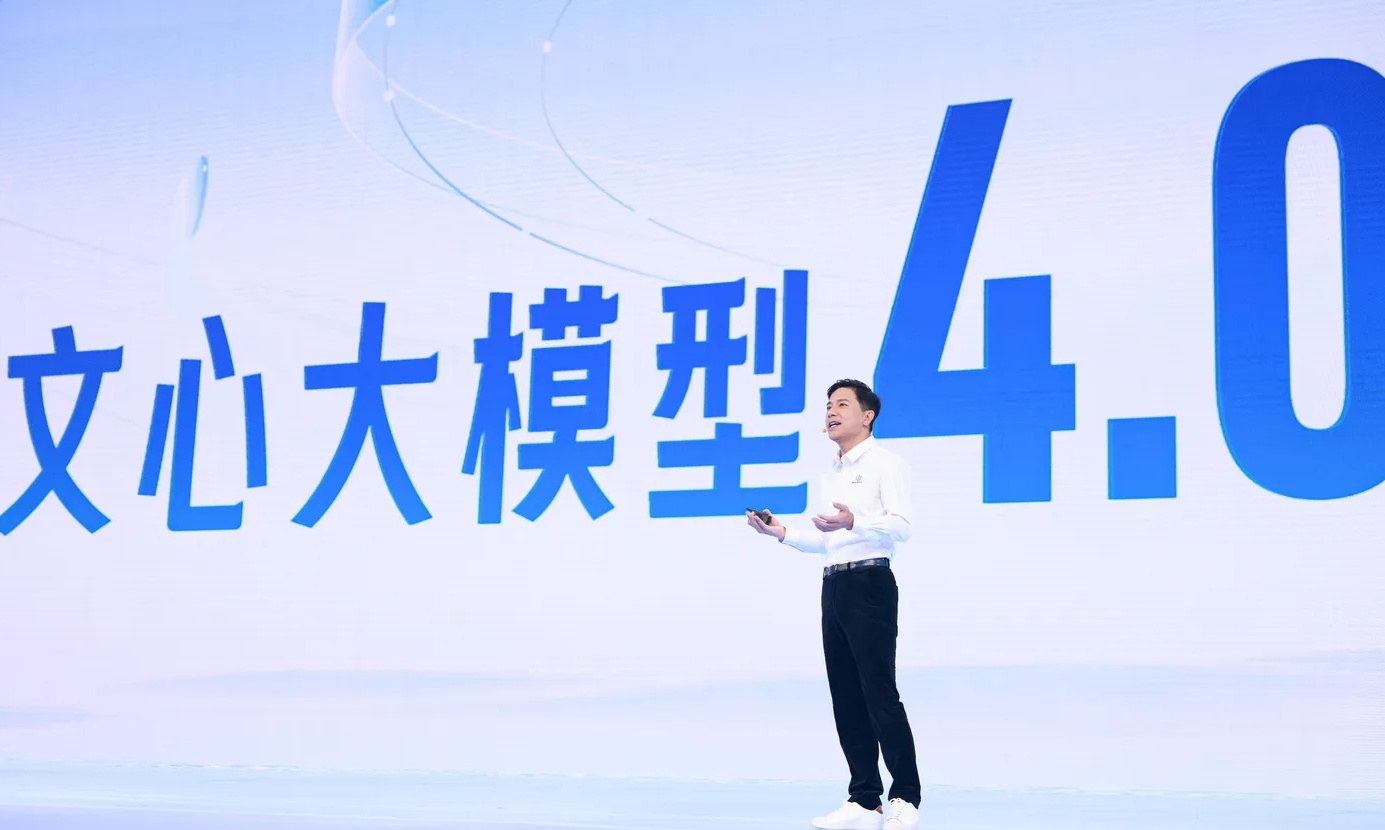
Image source: Baidu
In the long run, products with only a single search function may struggle to retain users, which means users need to add another app to their already cluttered app ocean. Personally, the ideal mobile environment would be to solve as many needs as possible with as few apps as possible, and Wen Xiaoyan's multimodal, all-around AI product route centered on AI search fits this trend.
At present, Baidu's product direction for Wen Xiaoyan seems feasible. The name change to Wen Xiaoyan is simply to be closer to users and better face the upcoming AI search competition. However, its biggest challenge is balancing the breadth and depth of its functions. Whether to prioritize adding new functions or delving deeper into the performance of functions like AI search may be something Baidu needs to consider next.
Additionally, the free one-month use of the Wenxin 4.0 large model is expected to bring many new users to Wen Xiaoyan. When using it, please note that the AI defaults to using the 4.0 Turbo model, and different models may provide different experiences, which can be switched as needed.
IFA (International Funkausstellung Berlin) 2024 opens grandly from September 6-10. Chinese tech giants such as Lenovo, Honor, TCL, Hisense, Changhong, Jiangbolong, Timekettle, NARWAL, Dreame, XGIMI, DBank, Baseus, UGREEN, Insta360, DJI, and Leifeng gather in Berlin to showcase their latest products on the world stage. Lei Tech's IFA 2024 reporting team will be on-site to provide comprehensive coverage, so stay tuned.
Source: Lei Tech







